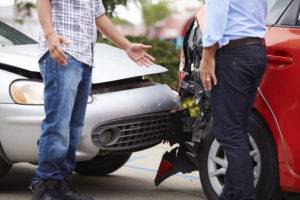In Florida, car insurance companies insure golf carts. This includes Allstate, Geico, Nationwide, Progressive, Safeco and State Farm.
Only golf carts that run in public areas must be insured. However, even if you’re only using one on private property, getting insurance is still wise. Minimum liability coverage is required if you use the vehicle on public roads. It ensures you can legally travel in such areas in your golf cart.
Legal Requirements for Golf Cart Use in Florida
Florida institutes legal requirements for golf cart use. They include using golf carts on public roads and insurance coverage.
Using Golf Carts on Public Roads in Florida
According to Florida Statute 316.212, golf carts can be used on state, county or municipal roads as long as they comply with certain requirements. They must travel at specific speeds, have safety equipment and cross roads alongside golf courses or trailer parks.
Insurance Requirements in Florida
Florida doesn’t have insurance requirements for golf carts unless one is considered a low-speed vehicle (LSV). However, it’s still wise to obtain insurance coverage for protection. A golf cart can be added to homeowners’ insurance or insured on its own.
Need free legal help in Florida?
We specialize in personal injury claims.

Types of Insurance Coverage for Golf Carts in Florida
Different types of insurance coverage are available for golf carts in Florida. They include liability, collision and comprehensive coverage.
Liability Insurance in Florida
Liability insurance can cover golf carts in accidents. It covers injuries to other people and damages to other people’s vehicles and property. Liability coverage can also compensate a plaintiff in an accident lawsuit.
Collision Insurance in Florida
Collision insurance is optional coverage for a golf cart. It can pay for damages from accidents with other vehicles, single-vehicle accidents or collisions while parked.
Comprehensive Insurance in Florida
Comprehensive insurance can protect a golf cart from damage caused by means such as weather or natural disasters. It also pays for damages from inanimate objects and other things beyond anyone’s control. Comprehensive coverage is required on financed or leased vehicles.
Golf Carts vs. Low-Speed Vehicles (LSVs)
There are differences and similarities between golf carts and low-speed vehicles (LSVs). According to Florida Statute 316.2122, both must not travel above 35 miles per hour. They must also operate only on roads with speed limits up to 35 miles per hour. LSVs have better safety features and can travel on roads on which golf carts cannot operate.
Golf carts and low-speed vehicles have different insurance implications as well.
Insurance Implications
Golf carts don’t require insurance in Florida. LSVs must be insured with personal injury protection (PIP) coverage and property damage liability (PDL) coverage. They must also be registered and titled.
Factors Influencing Golf Cart Insurance Costs in Florida
Different factors influence golf cart insurance costs in Florida. They are age and driving record, coverage options and limits and location and usage.
Age and Driving Record
Golf cart insurance is higher for younger operators who have shorter driving histories. Those with poor driving records can also expect to pay higher premiums. Older, more experienced drivers pay less for their golf insurance.
Coverage Options and Limits
Having coverage beyond the bare minimum increases golf insurance rates. Some options may have a limit to what’s allowed as well. However, adding more coverage can give the operator better peace of mind.
Location and Usage
Golf cart insurance may cost more or less based on your location. How often you use the cart also impacts how much you pay. If you only use it on private property, your rates are lower, but public road use results in higher premiums.
Need free legal help in Florida?
We specialize in personal injury claims.

Modifications and Their Impact on Premiums in Florida
Some golf cart owners may want to make modifications to their vehicles. In Florida, this, too, can affect your insurance premiums. Modifying your golf cart can increase your rates.
Frequently Asked Questions
Do Golf Carts Have to Be Insured in Florida?
Golf carts do not have to be insured in Florida. It’s still a good idea to get some coverage to protect yourself.
Are Golf Carts Registered in Florida?
Florida requires golf carts to be registered to operate on public roads. Registrations must include vehicle identification numbers.
Does Umbrella Insurance Cover Golf Carts?
Umbrella insurance can cover golf carts. It can include various types of optional and liability coverage.
What Is Proof of Ownership of a Golf Cart in Florida?
The bill of sale and registration of a golf cart are valid proof of ownership in Florida.
Does Homeowners Insurance Cover Golf Cart Accidents in Florida?
Homeowners insurance only covers golf cart accidents when they occur on your property. It doesn’t apply when you travel off that property on public roads.
Do You Need a Driver’s License to Drive a Golf Cart on the Road in Florida?
In Florida, you don’t need a driver’s license to drive a golf cart on the road. However, anyone under age 18 needs a learner’s permit to operate a golf cart on public roads.
Can You Drink and Drive a Golf Cart in Florida?
It’s against the law to operate any vehicle while under the influence of alcohol. This includes golf carts, so if you drink and drive one, you can face DUI charges.
Can You Ride a Golf Cart on the Sidewalk in Florida?
You cannot ride a golf cart on the sidewalk in Florida. They must only be operated in designated areas.
Do You Have to Wear a Seatbelt on a Golf Cart in Florida?
According to Florida Statute 316.2126, golf carts must include safety features. This includes seatbelts, which must be used while traveling on public roads.
How Old Do You Have to Be to Own a Golf Cart in Florida?
You must be at least 18 to own a golf cart in Florida.
Need free legal help in Florida?
We specialize in personal injury claims.






